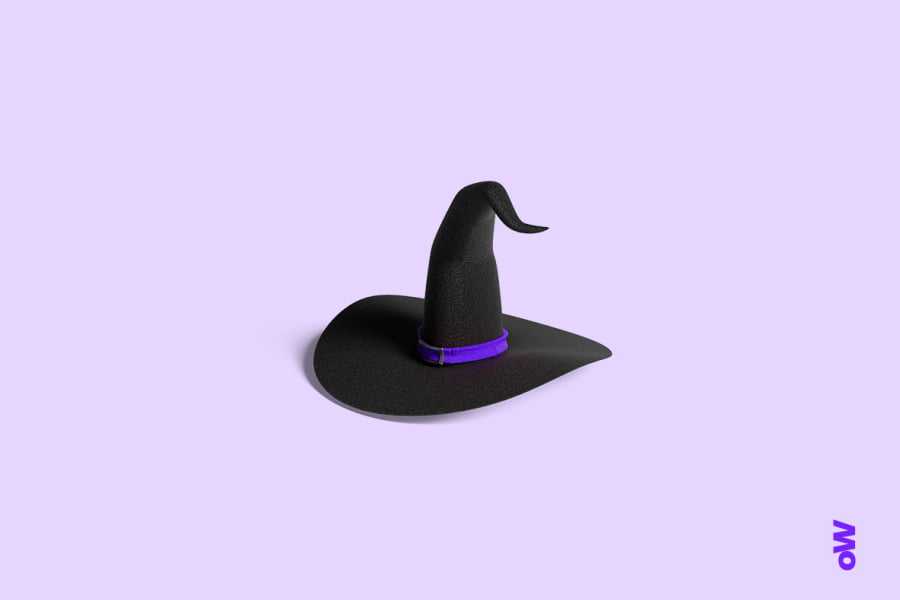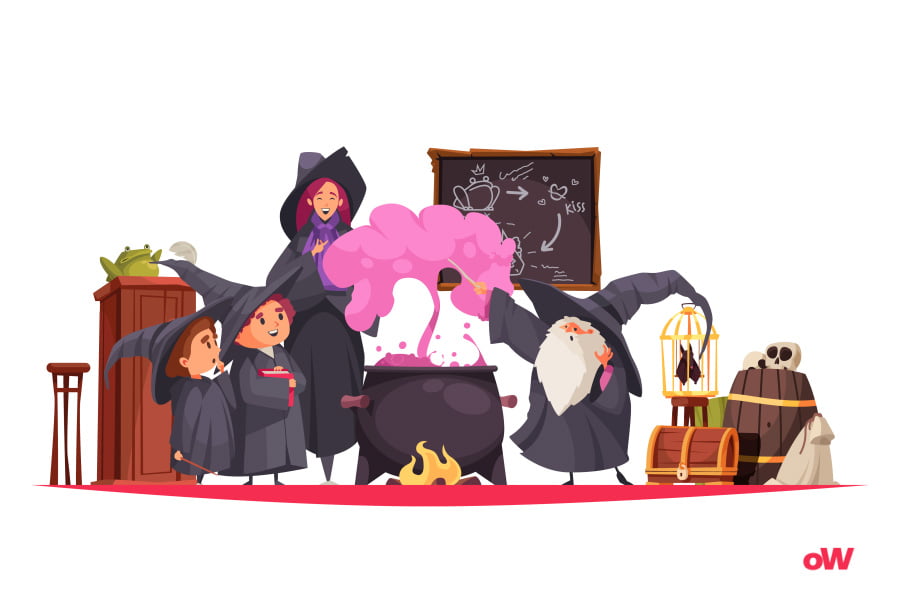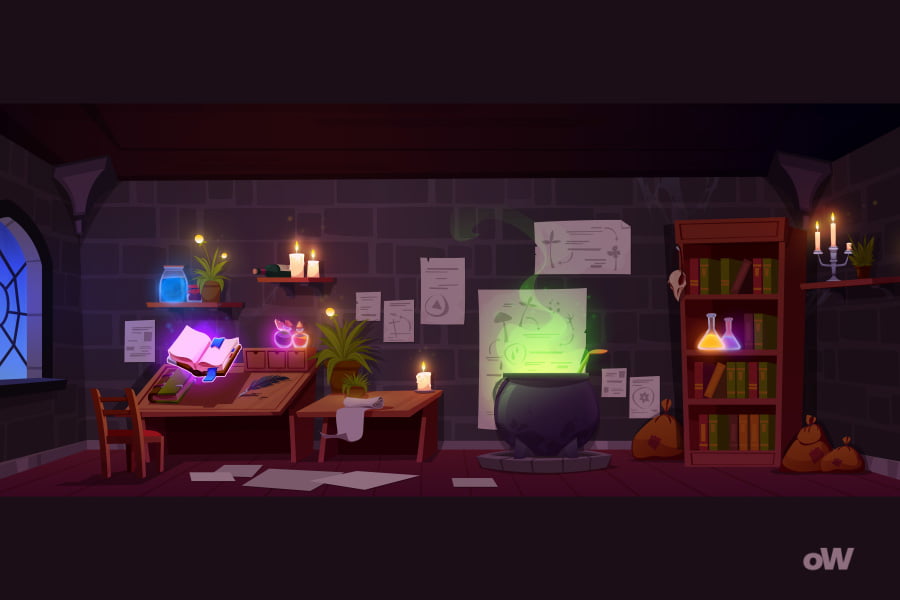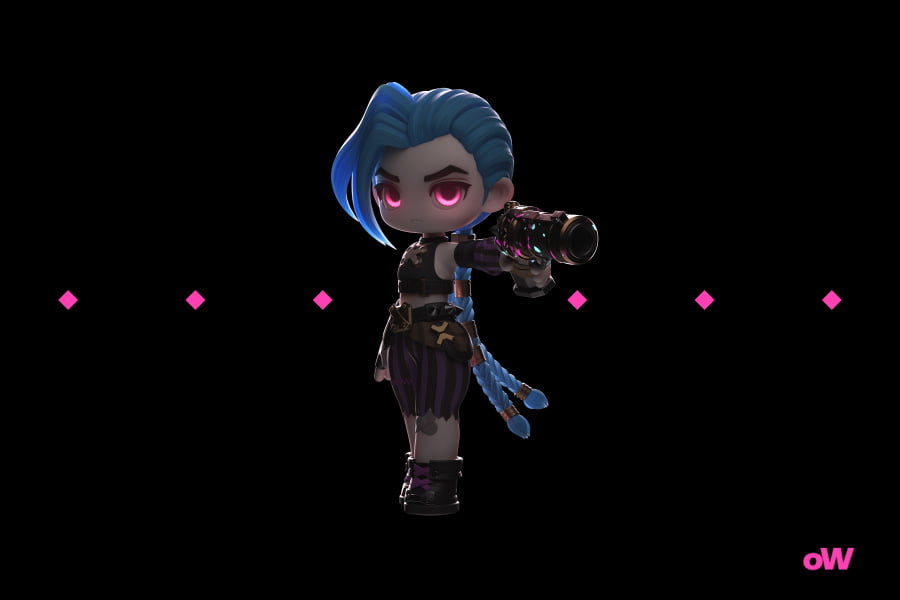Harry Potter House Quiz: Your Wizarding Path

“Difficult!” exclaimed the Sorting Hat upon finding itself on Harry Potter’s head. This moment of uncertainty, when the young wizard’s fate hung in the balance between Gryffindor and Slytherin, became pivotal not only for the plot of the books but for an entire generation of readers. Today, the “Harry Potter House Quiz” recreates this moment of choice for anyone ready to look into the depths of their personality through the lens of the magical world.
A Brief History of Harry Potter
The story of the boy with the scar began long before the publication of the first book. J.K. Rowling conceived the plot’s foundation during a train journey from Manchester to London in 1990. The first draft of the “Philosopher’s Stone” was written on an old typewriter in Edinburgh cafes while the author tried to make ends meet as a single mother. Notably, the house system was not initially intended to be so complex – Rowling wanted to create a simple way of dividing students. However, as the story developed, this system acquired deep philosophical and psychological undertones.
Throughout the writing of the seven books, the house system evolved from a simple plot device into a complex tool for exploring human nature. Each new book added new facets to understanding what it means to belong to a particular house. For example, the image of Slytherin became significantly more complex after the introduction of characters like Horace Slughorn and Regulus Black.

Origins and Evolution of House Sorting
The history of Hogwarts’ founding dates back to the 10th century CE – an era when the magical community faced growing persecution from Muggles. Four of the greatest wizards of their time – Godric Gryffindor, Salazar Slytherin, Helga Hufflepuff, and Candida Ravenclaw – decided to create a safe place for young wizards to learn.
Each founder brought to the school not only their magical knowledge but also a deep understanding of what qualities were necessary for developing magical potential. Godric Gryffindor, who came from wild moorland, valued students’ readiness to face danger and defend their beliefs. Salazar Slytherin, a refined aristocrat and master of Legilimency, sought those with sharp minds and ambition. Helga Hufflepuff, known for her culinary mastery and ability to communicate with magical creatures, saw potential in hard work and loyalty. Candida Ravenclaw, one of the greatest witch-researchers of her time, looked for an unquenchable thirst for knowledge in her students.
The Sorting Hat: Magical Artifact or Psychological Tool?
The creation of the Sorting Hat is one of the greatest magical achievements of Hogwarts’ founders. This artifact represents a unique combination of mind-reading, divination, and transfiguration spells. The Hat doesn’t just read a student’s surface thoughts – it can look into the most hidden corners of their personality, seeing potential that might not be obvious even to the person themselves.
It’s interesting to draw parallels between the Sorting Hat’s working principle and modern psychological theories. For instance, the concept of the four houses remarkably resonates with the Myers-Briggs personality typology, based on Carl Jung’s work. Gryffindor is often associated with extroverted thinking, Slytherin with introverted intuition, Ravenclaw with introverted thinking, and Hufflepuff with extroverted sensing.
The Birth of the “Harry Potter House Quiz”
As the series grew in popularity, fans began creating their own versions of sorting. The first online tests appeared at the dawn of the internet – they were simple and often based on obvious stereotypes. The real revolution happened with the launch of Pottermore in 2011. J.K. Rowling personally participated in developing the official test, which took into account many personality nuances.
Modern quizzes use complex algorithms that analyze not only direct answers but also hidden patterns of choice. Some tests include elements of situational analysis, offering moral dilemmas or reactions to unexpected situations.

The Four Houses of Hogwarts
Each of Hogwarts’ four houses represents a unique combination of values, traditions, and approaches to magic. Over the school’s thousand-year history, these differences haven’t faded but have acquired new shades of meaning, reflecting the changing magical world.
Gryffindor
The Gryffindor house is often perceived through the lens of its most famous representatives – Harry Potter, Hermione Granger, and the Weasley family. However, the true essence of this house is much more complex. Gryffindor courage manifests not only in readiness for physical confrontation but also in moral fortitude.
Take, for example, Neville Longbottom’s story. His journey from an insecure first-year to the leader of resistance at Hogwarts demonstrates the true nature of Gryffindor bravery – the ability to overcome one’s own fears for a higher purpose. Or Remus Lupin, whose daily struggle with lycanthropy required no less courage than confronting Death Eaters.
Interestingly, many Gryffindors display traits traditionally associated with other houses. Hermione possessed intelligence worthy of Ravenclaw, the Weasley twins demonstrated Slytherin cunning in their pranks, and Neville showed Hufflepuff’s diligence.
Slytherin
Slytherin is the house that most often falls victim to stereotypes. Yes, many dark wizards came from Slytherin, but this is more a consequence of how ambition and the desire for power can be directed negatively. History knows many outstanding Slytherins who used their qualities for good.
For example, Merlin, the greatest wizard of all time, was a Slytherin. His ambitions were directed toward creating harmony between the magical and Muggle worlds. Horace Slughorn, despite his love for comfort and connections, used his influence to protect Muggle-born students during the Second Wizarding War.
Slytherin cunning isn’t necessarily negative. It’s the ability to see situations from all angles, find unconventional solutions, and use available resources most effectively. In the modern world, these qualities are highly valued in business, politics, and diplomacy.
Hufflepuff
Hufflepuff is often underestimated, considered the house for “all the rest.” However, this house embodies qualities without which a healthy society cannot exist. Hard work, loyalty, honesty, and fairness are the foundation upon which any successful community is built.
Cedric Diggory is a bright example of what a true Hufflepuff can be. He not only possessed outstanding magical abilities but also demonstrated the highest moral qualities. His sense of justice was evident when he tried to refuse victory in a Quidditch match due to the presence of Dementors.
Nymphadora Tonks is another example of how Hufflepuff qualities can manifest in unexpected ways. Her loyalty to the Order of the Phoenix and readiness to fight for a just cause show that Hufflepuff dedication can be no less impressive than Gryffindor bravery.
Ravenclaw
Ravenclaw is often perceived as the house of bookworms and nerds, but this is a profound misconception. The main characteristic of Ravenclaws is not so much academic intelligence as creativity of thinking and the pursuit of knowledge in all its forms.
Luna Lovegood is a perfect example of how Ravenclaw intelligence can manifest. Her unusual worldview, which many considered strange, actually demonstrated a deep understanding of reality that went beyond conventional perceptions. Her ability to see Thestrals and understand riddles shows that true wisdom doesn’t always lie in book knowledge.
Professor Flitwick, Head of Ravenclaw, also demonstrates the diversity of his house’s talents. Being an outstanding Charms specialist, he was also a dueling champion, showing how intelligence can be applied in practical areas.

Conclusion
In Harry Potter’s magical world, house sorting was never a mere formality. Over Hogwarts’ thousand-year history, this tradition has transformed into a profound ritual of self-discovery, where each student begins their journey to understanding their true nature. The “Harry Potter House Quiz” has become a modern reflection of this ancient tradition, bringing the Sorting Hat’s wisdom into the digital age.
But perhaps the main magic of sorting lies not in the result itself, but in the reflections and discoveries we make in the process. Just as Harry Potter made his choice in the Great Hall, each of us daily chooses which qualities of our house to display: Gryffindor courage, Slytherin ambition, Hufflepuff loyalty, or Ravenclaw wisdom.
Disclaimer
This quiz is designed for entertainment purposes only. The results are not scientifically validated and do not constitute professional advice or assessment. The quiz results are meant to be fun and should not be used as a basis for any life decisions or as a substitute for professional consultation. If you need personalized guidance, please consult with appropriate qualified professionals.
Questions Overview
- Approach it carefully, trying to understand what it is and whether it's dangerous.
- Quickly devise a plan to either contain or peacefully remove the creature from your backyard.
- Stay away and inform someone more qualified. Safety first!
- See if you can leverage this encounter to your advantage in some way.
- Study it closely to understand its origin and potential uses.
- Use it for an epic adventure or a noble cause.
- Return it to the rightful owners, if any, or to the authorities.
- Keep it, who knows when it might prove useful.
- Auror, ready to face any threat to the wizarding world.
- Professor at Hogwarts, the learning never ends.
- Healer, because nothing matters more than helping others.
- Ministry official, having control and influence.
- Puzzled, but eager to crack the case.
- Thrilled! It's an opportunity for a great adventure.
- Concerned about safety, but willing to abide by the rules.
- Pleased. You've planned this for weeks.
- Protego – Defence is key.
- Crucio – Just in case someone crosses you.
- Accio – You love the convenience.
- Sectumsempra – For curiosity's sake.
- Phoenix, symbol of rebirth and healing.
- Basilisk, a terrifying yet powerful creature.
- Niffler, cute and quite handy in finding shiny objects.
- Owl, known for its wisdom and knowledge.
- Respect their decision but prepare a backup plan.
- Point out the flaws and suggest a smarter route.
- Support them, their friendship means more to you.
- Let them learn their lesson.
- Invisibility, you love the thrill of being unseen.
- Legilimency, to delve into the depths of others' minds.
- Apparition, it's all about being there for others when needed.
- Metamorphmagus, the study of such change would be fascinating.
- Sirius Black, loyal and courageous.
- Severus Snape, cunning and complex.
- Nymphadora Tonks, hardworking and dedicated.
- Albus Dumbledore, wise and insightful.
- A dark figure of a powerful dark wizard.
- A creature with huge, venomous fangs.
- Yourself, failing or disappointing those you care about.
- A complex riddle that you can't solve.
- Confront the accuser and argue for your friend.
- Find a loophole in the school rules to get them out of trouble.
- Stand by your friend, even if they have to face punishment.
- Gather evidence to prove your friend's innocence.
- As a place to train and improve your magical skills.
- As a place to store your secrets and personal treasures.
- As a place to relax and enjoy some peace and quiet.
- As a limitless library full of magical knowledge.
- Harry Potter, courageous and modest.
- Draco Malfoy, ambitious and resourceful.
- Cedric Diggory, hardworking and fair-minded.
- Luna Lovegood, creative and open-minded.
- Embark on a daring adventure in search of magical artifacts.
- Make connections and alliances that could prove useful in the future.
- Spend quality time with family and friends.
- Engage in studying and exploring more magical knowledge.
- Yourself, recognized and celebrated as a hero.
- Yourself, powerful and influential, respected by all.
- Yourself, surrounded by loved ones and living a happy life.
- Yourself, unravelling the deepest mysteries of magic.
- It amplifies courage and bravery in the face of danger.
- It manipulates people's perceptions to your advantage.
- It instantly grows plants and flowers, perfect for creating serene environments.
- It expands your memory capacity, so you'll never forget any piece of information.
- Confront the person, ensuring the safety of the school.
- Observe and gather information that might be used to your advantage later.
- Inform a trusted professor, so they can handle the situation.
- Analyze their behavior to determine if it's genuinely malicious or just misinterpreted.






